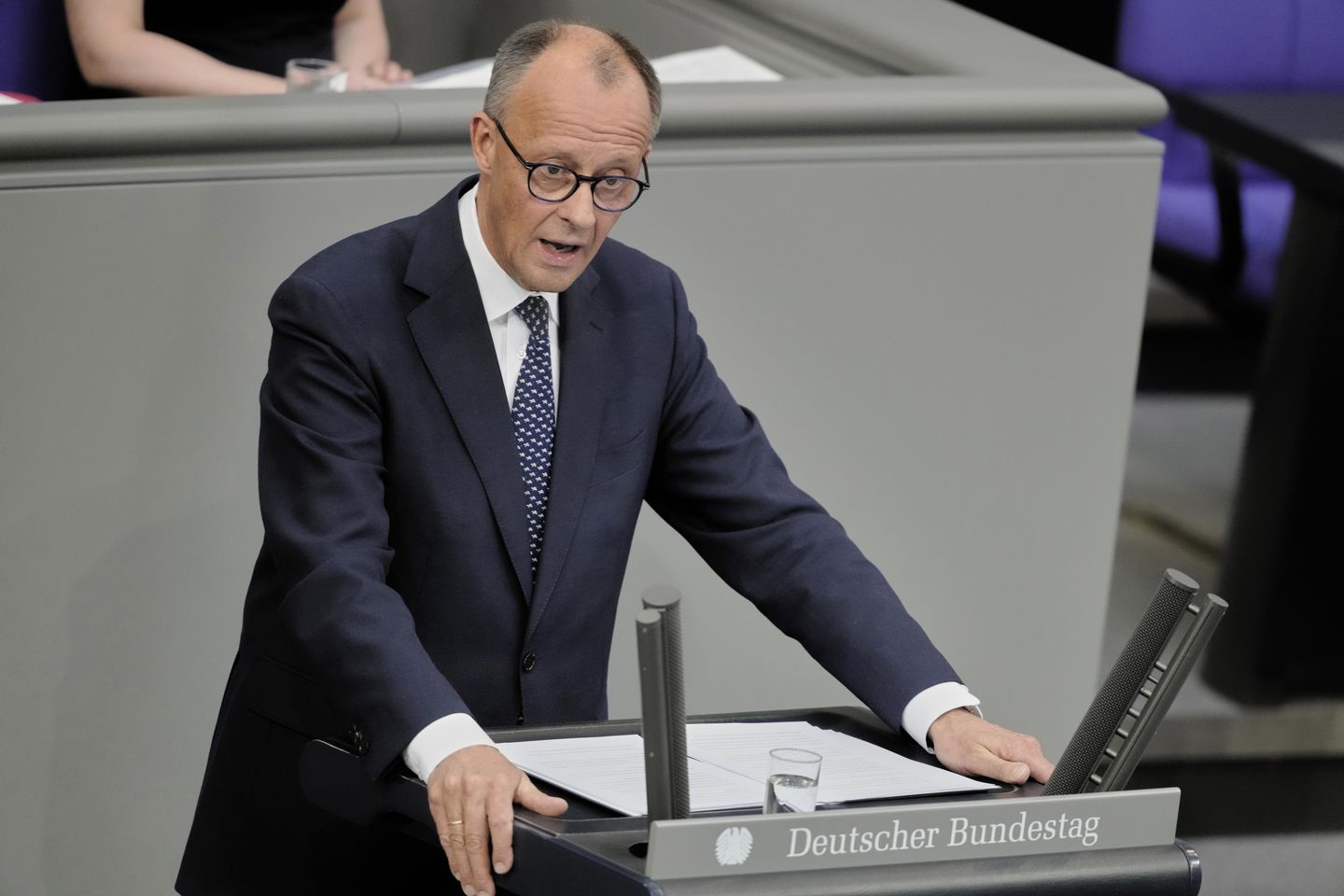
German Defense Minister Boris Pistorius told European Union lawmakers on Tuesday that Berlin is open to raising military spending to 5% of its GDP, an amount President Trump demanded to get NATO allies to pay their “fair share” for defense.
The spending boost will be necessary if Chancellor Friedrich Merz wants to achieve his ambitious goal of making the Bundeswehr — Germany’s military — into the strongest army in Europe.
Mr. Pistorius warned reporters on the sidelines of Tuesday’s EU Foreign Affairs Council meeting in Brussels that Germany wouldn’t be able to meet its NATO spending goals with the 2% of GDP it currently devotes to the military. But, they only hit that level in 2024 after previously hovering around the 1.5% mark.
“It’s not about achieving 5% in one year. The plan is to achieve that in five to seven years by increasing the defense budget by 0.2% per annum,” Mr. Pistorius said. “The most important thing is to start really refilling the NATO requirements.”
In his first address to the parliament last week, Mr. Merz promised that his government would provide the financial support necessary for the Bundeswehr to be the “strongest conventional army in Europe.”
“This is only fitting for Europe’s most populous and economically powerful country,” he said. “Our friends and partners expect nothing less from us. They are demanding it.”
Retired Marine Corps Col. Mark Cancian, a senior advisor with the Center for Strategic and International Studies, said he has no doubt Germany is capable of building the largest military in Europe if it spends the money.
However, their military priority should not be focused on merely accumulating more tanks, planes, and rifles. Units in the Bundeswehr are notorious for being at low readiness levels, he said.
“What they need to do is to increase the readiness and quality of the force. Not to make it bigger,” Col. Cancian told The Washington Times. “That would be an immense contribution to European defense without getting any larger.”
Germany’s military was subjected to years of underfunding following the collapse of the Soviet Union. Analysts revealed dire problems such as shortages of ammunition and the dilapidated barracks where soldiers were supposed to live. Russia’s invasion of neighboring Ukraine in February 2022 changed the political dynamic for military issues in Germany, as well as in the rest of Europe.
“We are threatened by Russia. We are threatened by Putin,” Gen. Carsten Breuer, Germany’s top soldier, told the BBC in March 2025. “We have to do whatever is needed to deter that.”
Soon after the invasion, then Chancellor Olaf Scholz declared that Germany had reached a national turning point, a “Zeitenwende,” in its dealings with the Kremlin. He committed about $108 billion to boost their military. Gen. Breuer told the BBC that funding has begun to run dry.
“We filled up a little bit of the potholes. But, it’s really bad,” he said.
NATO Secretary-General Mark Rutte attended Tuesday’s European Union meeting in Brussels to discuss the current threats facing both NATO and the wider EU territory. He said ongoing support for Ukraine in its war with Russia will be on the agenda.
“We will, no doubt, discuss ramping up defense spending and ramping up defense production,” Mr. Rutte said. “We collectively need to make sure that Ukraine has what it needs to bring this war to a lasting and durable end — be it a ceasefire, a long-term ceasefire, or a peace deal.”
In his speech to the German parliament, Mr. Merz tied Ukraine’s security to that of Europe as a whole.
“What’s at stake in Ukraine is nothing less than the peaceful order of our entire continent,” he said.












